“You want employees who are willing to fight with you and make sure that the company becomes one of the leading players in the industry. Sell them the vision and make sure that they are also part of the journey by giving key employees stock options etc.”
As a part of my series about “the 5 Things I Wish I Knew Before I Started Leading a Cannabis Business ”, I had the distinct pleasure of interviewing Johan Obel. Johan is the Director and co-founder of Phytobrands, a diversified UK based CBD business. The primary business under the Phytobrands umbrella is Thedrug.store — a leading European CBD retailer.
Thank you so much for doing this with us! Can you share with the ‘backstory” about what brought you to the cannabis space?
It was actually quite a coincidence. The property development company that I worked for decided to close its London office and I was not ready to move back to Denmark.
During that summer my father, Lars Thomassen, was looking to launch a business with a partner who was one of Europe’s most experienced hemp farmers. At the same time, the Danish Government initiated the process of medical cannabis legalization. My father and his partner realized that this was a great opportunity and managed to enter a joint venture with Canopy Growth.
I was unsure what I wanted to throw myself at, but after looking at the opportunities in the cannabis space, I decided to join my father and his partner and initially my primary role was to drive expansion by building strong relationships with various European governments and support them in the process of legalization of medical cannabis.
During this time I got a thorough understanding of the European CBD market and the issues herein. I saw an opportunity to do better than the competitors and I asked a friend, Clemens Boninger, with whom I studied for my masters at Imperial College, whether he would be interested in starting “something” in this industry. We were not sure exactly, where to put our focus, but we knew that there was a massive potential. So I stopped working on the expansion of medicinal cannabis and went full-time on the development of Phytobrands together with Clemens.
Can you share the most interesting story that happened to you, since you began leading your company?
Thedrug.store started off as a purely online business, but we were not really getting the traction that we were looking for. We tried pretty much all online marketing opportunities available for CBD (that wouldn’t jeopardize our brand), but realized that either the conversion was too low or the price too high.
The real breakthrough came with the launch of our first physical pop-up on the famous King’s Road, London. During the first two days, we did a month worth of revenue and all the major news outlets that we had struggled to get before suddenly started to be interested in us and our conversion in the shop was +60%. We realised CBD was still so new that the consumers needed the extra market validation that only a physical presence can give.
Can you share a story about the funniest mistake you made, when you were first starting? Can you tell us what lesson, you learned from that?
The “funniest” story is probably from my time in CBD. In November 2018 I was going to MJ BIZ Con in Las Vegas. In border control, they asked me, why I was in town and, consequently, the officer asked, if I had any THC or CBD on me. I pulled up the bottle of THC free CBD capsules and I was told that if they tested positive for THC, I would be sent back and my ESTA retracted.
The test used to detect the presence of THC is a quick-test in a chemical reaction tube: if the liquid changes color it’s an indication that the product contains THC. However, the chemical structure of the cannabinoids (THC, CBD, Etc.) is quite similar, which means that with low-quality tests, you may still see a color change. This, I would soon come to know the hard way.
I was confident that the products were entirely free from THC, as they have been tested several times to the fifth percentile, but to my disappointment, the sample wrongly tested positive, and I was escorted by armed officers back onto the same plane that I arrived on.
Working in a new industry you have to take the beating sometimes.
Are you working on any exciting projects now?
We are constantly looking at new projects. Thedrug.store is, by all means, our core business, and we have exciting new initiatives starting now. The most noteworthy change is our move from a purely online business into expansion through high street retail, with plans to open more permanent shops around Europe.
Besides Thedrug.store, we are diversifying into product development. We have entered a partnership with a leading alcohol distributor and will soon be launching our CBD infused alcohol-free beer.
We have also just partnered with a medical doctor who will participate in our product development. We intend to stay in the health and wellness space, but she will be able to bring the needed credibility to our own product line.
None of us are able to achieve success without some help along the way. Is there a particular person who you are grateful towards who helped get you to where you are? Can you share a story?
As mentioned, we would never be where we are now had it not been for my father, Lars Thomassen. He brought me along when he first started in the industry. Who would have thought that it would be your father who would introduce you to the world of cannabusiness.
The experience that I learned the most from was through helping Spectrum Cannabis Denmark grow internationally. My father gave me the chance to travel to whichever country I could get in contact with the government and commence the discussion on medical cannabis legalization. Most noteworthy, I practically lived 6 months in Greece working directly with the prime minister’s office and taking a direct role in fast-tracking the legalization, which happened in March 2018. During my time here, I also met Lavipharm, one of the largest Greek pharmaceutical companies. I had a very good collaboration with them and introduced them as a potential partner to Canopy Growth, which resulted in another joint venture between the two.
This is still one of the achievements that I am most proud of and probably the single experience that taught me the most. Through this time, I also visited or had discussions with several other governments including Iceland, Malta, Croatia, Lithuania and Macedonia.
Had it not been for my father’s trust in me, I would never have had this opportunity and he taught me that the only way you can make any change is by showing the commitment to the involved parties by being on the ground as much as possible.
This time taught me invaluable lessons and gave me practical knowledge that I use every single day at Thedrug.store.

This industry is young dynamic and creative. Do you use any clever and innovative marketing strategies that you think large legacy companies should consider adopting?
As you cannot do online marketing on a large scale, it has been interesting for us to learn that, in this case, you actually need to go back to good old marketing tools. At the core is great consumer-facing PR, but we are also testing tons of different guerrilla approaches.
Can you share 3 things that most excite you about the Cannabis industry? Can you share 3 things that most concern you?
I think what excites me the most is the development of an entirely new industry and the endless business opportunities that it brings. I think many people in this industry struggle to keep their focus, simply because of the number of new businesses, one could start in this sector.
My concerns can be split into the short and long term. In the short term, I am still concerned about the endless amount of “grey market players”. Due to the lack of regulatory guidelines and the history of this business, there are so many, who are just here to make a quick buck. They particularly talk to the old smokers community and throw around unjustified product claims that could have a very severe impact on people’s life. I feel very discouraged when I read posts in the CBD user groups from sellers, who advise patients to stop other treatments and rely purely on cannabis, as many sellers lack medical expertise to make such suggestions.
My long term concern or rather curiosity is how the industry will develop. Does a dispensary method work long term or will you be able to buy it everywhere? As recreational use becomes more common and products develop, spanning into many different categories, it will become increasingly difficult to maintain an overview for regulators and retailers. Where will the lines be drawn between, medical, health and wellness, recreational products and finally products that are not cannabis forward but contain cannabinoids as an ingredient?
Can you share your “5 Things I Wish Someone Told Me Before I Started Leading a Cannabis Business”? Please share a story or example for each.
1.If you want to do every single thing by the book, you probably can’t even get started. When it comes to regulation, the regulators themselves don’t even always know, what is up and down.
The industry is moving faster than the regulators, so the best advice I can give is to stay on top of any change and be able to adapt as promptly as possible.
2. It is not as easy as you might think (but that’s also what makes it exciting). I can’t count how many times, I have thought to myself “Why couldn’t we just be selling apples or something”. Everything is more complicated and you will face pushback on every single step of the way. If it’s getting a bank account, payment gateway, or handling product shipments. There is still a lot of skepticism that you have to deal with on a daily basis, especially in Europe.
3. Medical prescription cannabis in Europe is not something you do overnight. Medical standards in Europe are stricter than North America and doctors are pushing back. It is very very costly to even start thinking about taking part in this, hence it is currently only the big corporations such as Canopy Growth, Aurora etc. that are getting any noteworthy traction.
4. You will have to invest a lot. Anything you do in this industry will come at a high cost because you are also paying to develop the market. Marketing of online business without online marketing is very expensive and will take many tries. Prescription market cannabis will bring huge legal costs and if you are growing you need to get access to very costly facilities. However, everything will get cheaper in the near future.
5. Stay ahead of the competition, but not ahead of the consumers. This is more specific to Europe, as it is a much less developed market. When it comes to CBD products, we really try to educate the market by bringing in more advanced products, but if it is the first time, you try CBD, are you then really interested in protein powders, gummies etc. In our experience, consumers still tend to start with standard oils and capsules.
What advice would you give to other CEOs or founders to help their employees to thrive?
You want employees who are willing to fight with you and make sure that the company becomes one of the leading players in the industry. Sell them the vision and make sure that they are also part of the journey by giving key employees stock options etc.
You are a person of great influence. If you could inspire a movement that would bring the most amount of good to the most amount of people, what would that be? You never know what your idea can trigger. 🙂
When it comes to actual medical cannabis, I hope we can move away from the dispensary model and have it completely doctor controlled like any other drug. This will hopefully also remove focus from all the Rick Simpson types, who make completely unjustified claims and thus are putting people’s lives in jeopardy.
In regards to CBD, I hope, we will see a split, where we will have CBD for health and wellness and CBD for medical purposes. I believe it is wrong to adopt completely new methods for cannabis.
I believe medicine should ultimately be discussed with doctors and not with pseudo health experts. Obviously, none of this can ever happen, if doctors do not start to adopt cannabis in the everyday practice, so, for the time being, the most important thing we market participants have to understand is that we have a big responsibility and we should not promote self-diagnosis/medication for serious indications.


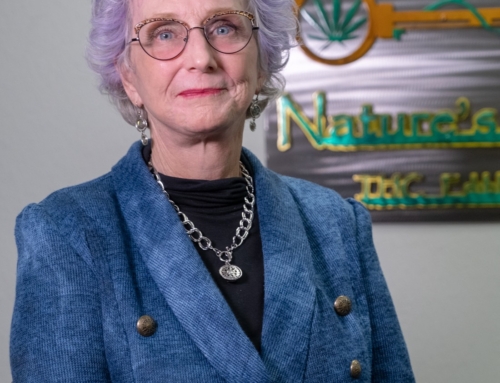
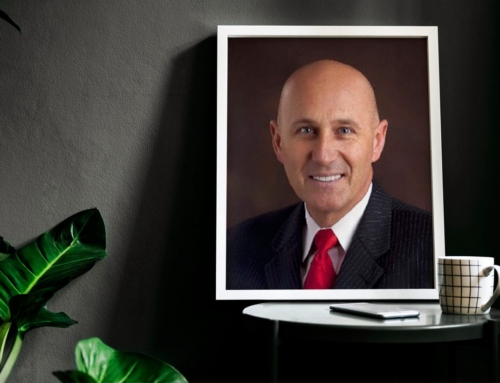
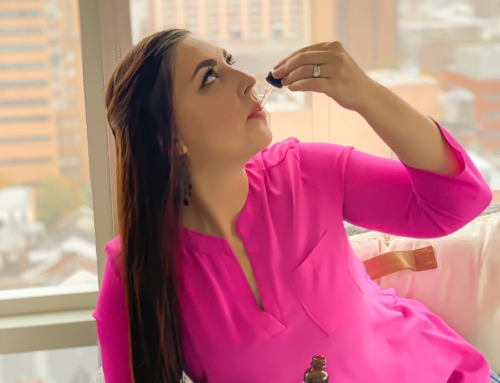

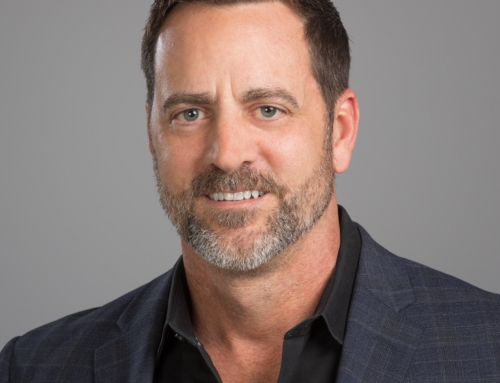
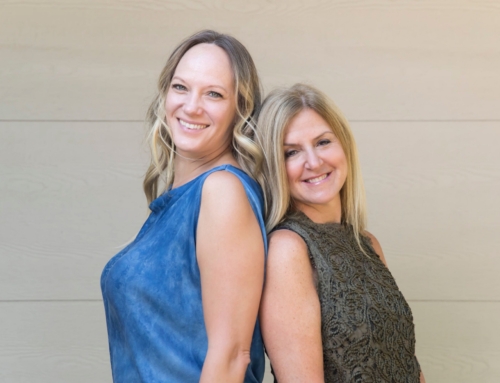
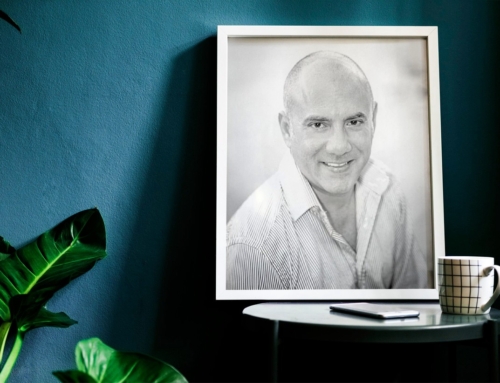
![“The potential to help people [in this industry] is enormous, but there’s still so much to learn.” – Ramon Alarcon, Witi](https://cf.lakesideremedy.com/wp-content/uploads/2020/12/1thj5ekUyxQ69iLz1JJyODg-scaled-e1607882756286-500x383.jpeg)
